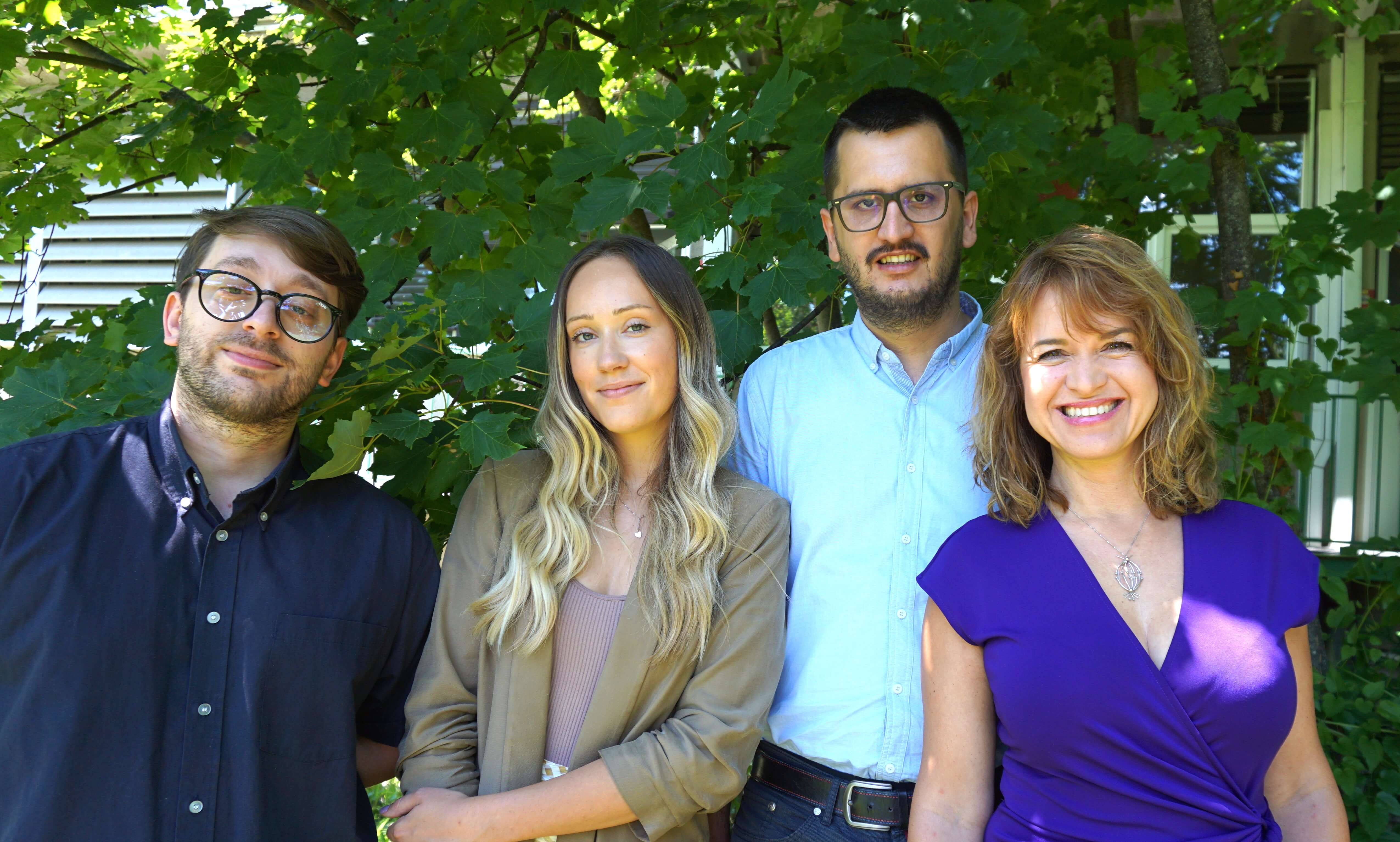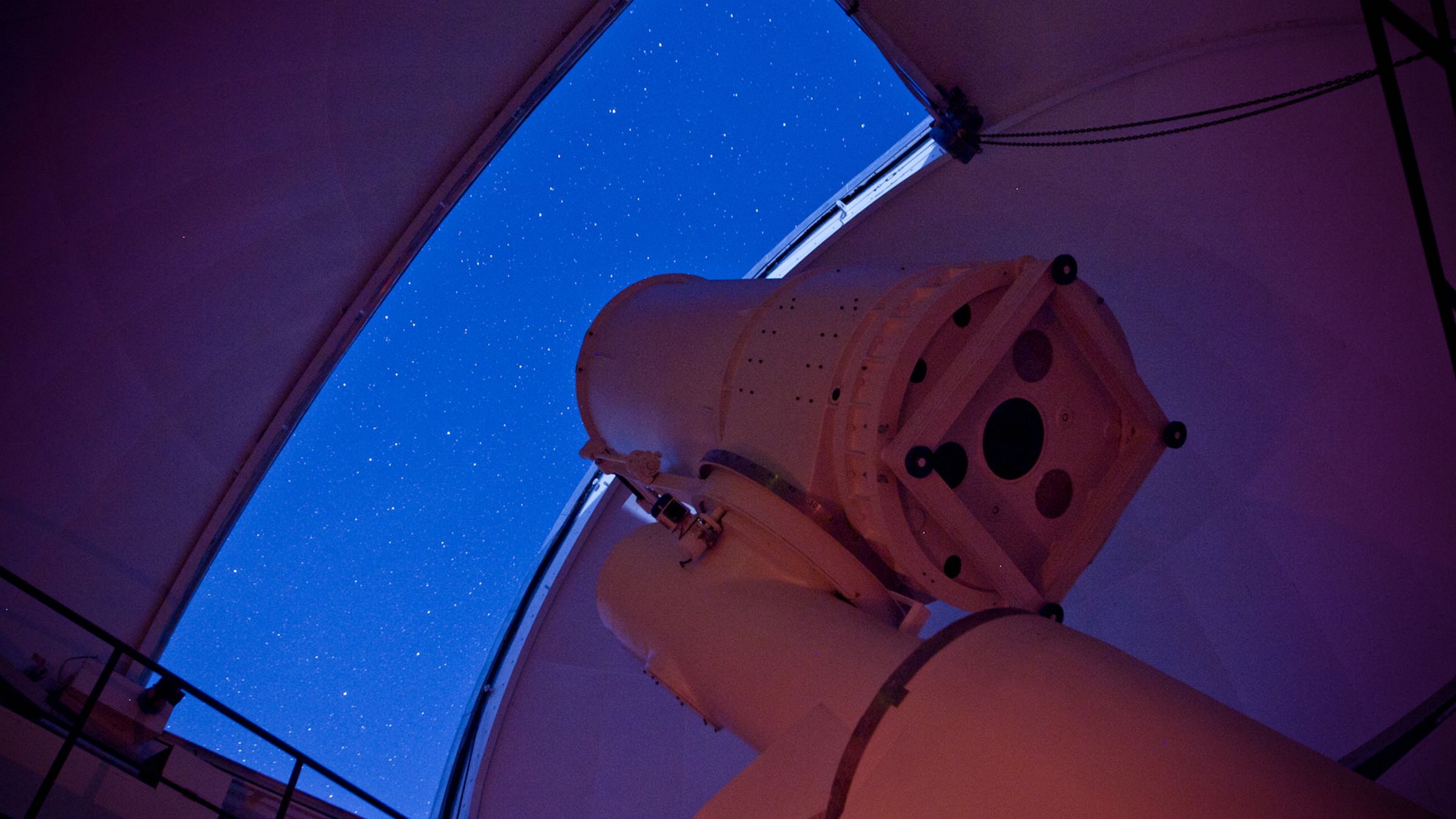Scientists Call for Concrete Action Plan to Protect Adriatic
ZAGREB, 26 Sept, 2021 - A group of Croatian scientists has issued a public letter underlining the importance of adopting an agenda or a specific action plan for the protection of the Adriatic Sea, vital for the sustainable development of the Croatian society, and their appeal was forwarded by the Eko Kvarner NGO on Sunday.
The scientists, who in September attended a conference on the Adriatic Sea eco-system on the island of Krk, say in their appeal to the prime minister, the parliament speaker and the public that the research of the Adriatic had been conducted for years but that there was a lack of systematic interdisciplinary research to account for "galloping changes."
They say that the changes are irreversible and that the rise of the sea temperature also causes a rise in the sea level and sea salinity, as well as increased sea stratification, and storm tides.
They warn about a growing number of alien species in the Adriatic, of which many are invasive and even poisonous, as well as about the loss of biodiversity.
Tourism-related activities, along with climate change, account for most of the pressure on the Adriatic, the scientists say, stressing that with waste water and intensive farming, more food and various harmful substances end up in the sea, accumulating in sea organisms through food chains.
"On top of that, plastic and other waste is becoming an increasingly big problem, with potentially far-reaching consequences for the quality of life in the sea and human health," they warn, pointing also to the problem of uncontrolled construction in the coastal areas, which results in the loss of the coastal seabed necessary for the propagation of sea organisms.
The scientists consider more active protection of the Adriatic, a better understanding of how its eco-system functions, and the adoption of regulations aimed at its protection as the solution for more sustainable development.
They propose the establishment of an advisory task force comprising scientists to participate in defining the agenda on measures of protection and underline the importance of developing IT technologies to monitor changes in the marine environment and involving citizens in monitoring those changes.
For more on lifestyle, follow TCN's dedicated page.
For more about Croatia, CLICK HERE.
Ruđer Bošković Institute Scientists: New Findings Regarding Isomers in Stereochemistry
July 8, 2021 - Ruđer Bošković Institute scientists made progress in stereochemistry that focuses on describing the order of atoms in three-dimensional space and compounds of equal molecular formulas.
While Ivo Andrić's Nobel Prize in literature is debatable whether it serves the national pride of Croatia, Serbia, or Bosnia and Herzegovina, the two Nobel prizes that are unquestionably for Croatians to brag about come from chemistry.
Croatian chemist Vladimir Prelog won the Nobel Prize in 1975 for his work in organic stereochemistry.
As the Ruđer Bošković Institute reported this week, Ph.D. candidate Natalija Pantalon Juraj and dr. Srećko Kirin provided new descriptions of isomers (focused on metal complexes), and their work is published in a prestigious Coordination Chemistry Reviews [IF2020: 22.3] journal, titled „Inorganic stereochemistry: Geometric isomerism in bis-tridentate ligand complexes“.
„The basis of the research was the analysis of structure from crystallographic database“, added IRB.
IRB explained in a press release that stereochemistry is focused on describing the order of atoms in three-dimensional space and compounds of equal molecular formulas, but that differ in the spatial order of atom placements are called isomers.
Prelog took an interest in organic stereochemistry (organic, being interested in compounds with carbon), and while organic stereochemistry has good ways of synthesizing the preferred isomers, the same isn't the case for inorganic (non-carbon compounds) chemistry.
While it is unclear if this work will be awarded and recognized among the international scientific community as much as Prelog's contribution, Pantalon Juraj and Kirin made some progress in advancing inorganic stereochemistry.
„Analysis of data presented in this paper shows trends in coordination properties of various ligands (ligand being an ion or molecule 'functional group' that binds to a central atom to form a coordination complex), thus answering the question of which ligand to choose and design a system to get a wanted isomer“, says IRB regarding the relevance of the research.
The detailed analysis also revealed stereochemical preferences that vary on various factors, and these findings are important for developing new functional coordinating complexes and also new selective catalizators to speed up the reactions.
This research was funded thanks to the Croatian Science Foundation as part of the project „Minimal Artificial Ensims“ (IP-2014-09-1461 and DOK-2015-10-2072), and "CAT Pharma" (KK.01.1.1.04.0013).
Learn more about Croatian inventions & discoveries: from Tesla to Rimac on our TC page.
For more about science in Croatia, follow TCN's dedicated page.
Croatian Scientists Answer Big Question in Cell Biology
June 1, 2021 - Croatian Scientists from one of the most prominent scientific institutse in Croatia, the Ruđer Bošković Insitute (IRB), answered a big question in cell biology regarding the spindle and cell division that has puzzled scientists for decades.
Croatian scientists from the Ruđer Bošković Science Institute (IRB), more precisely, dr. Kruno Vukušić, Ph.D. students Ivana Ponjavić, Patrik Risteski, and Renata Buđa, lead by professor Iva Tolić, researched and have now answered one of the key questions in cell biology.
When it comes to this field of biology specialised in observing and researching cells that make organisms, the spindle is a structure of eukaryotic cells that form during cell division, which is crucial for organisms (including humans, of course) for growth, repair, and reproduction. The spindle is in charge of the distribution of genetic material, but the exact process and molecular mechanisms of that task has baffled scientists for decades.
The aforementioned IRB scientists had their paper published in a prestigious scientific journal, Developmental Cell: Microtubule-sliding modules based on kinesins EG5 and PRC1-dependent KIF4A drive human spindle elongation. The paper described a precise molecular mechanism of molecular microtubule sliding.
''Given that this is one of the key steps in cell division that happens in almost every organism, a molecular mechanism that expands the spindle was the object of interest of many pieces of research. Even though the last 20 years has seen significant progress in understanding these molecular mechanisms, the identity of the protein needed to expand the spindle remained unknown. The importance of the spindle in human cells is apparent, in the fact that besides being the key trigger of moving chromosomes, it encourages the correct segregation of those chromosomes which, if defected, correlate with cancer,'' they said from the IRB in a press release.
This IRB research showed that the proteins KIF11 and KIF4A are the key proteins that stop the expansion of the spindle. This breakthrough was achieved by ''silencing'' several of the many proteins that participate in the process since the previous methods of silencing proteins one by one didn't offer any new knowledge in understanding this process.

Risteski, Ponjavić, Vukušić and Tolić © Ruđer Bošković Institute
''We hope that the results of this paper will encourage more new research on the role of expanding the spindle in the final stages of cell division. The results we presented are the start of explaining the control mechanisms of this protein, the work of which is under the strict control of many other factors within the cell itself. In addition, the principle of common work we described in this paper could help scientists in determining molecular mechanisms in other processes that are important in cells,'' elaborated the research leader, professor Iva Tolić.
Learn more about Croatian inventions & discoveries: from Tesla to Rimac on our TC page.
For more about science in Croatia, follow TCN's dedicated page.
Croatian Teenagers Win Gold and Silver Medals at European Olympiad of Experimental Science
May 15, 2021 – Croatian students in the category of under 17 years of age, participated in the European Olympiad of Experimental Science. Not only that, but they returned as winners.
Young Croatian competitors at the European Olympiad of Experimental Science did not disappoint. Displaying great skill in handling experiments, data compiling, and problem-solving, Croatian teams managed to win gold and silver medals.
Tportal reports this year's competition ran from May 9th to May 14th. The host city this year was going to be the Hungarian city of Szeged. Unfortunately, the COVID pandemic forced the organisers to change the format of the competition. With travelling restrictions in place, Croatian participants worked on their experimental competition tasks in Zagreb. They used the facilities of the Faculty of Science, a part of Zagreb University.
The European Olympiad of Experimental Science is an annual competition by the EOES association. This is a non-profit association for the promotion of science education in high school students in the European Union. Their official website describes the competition as a mix of „experimental and laboratory activities in the fields of biology, chemistry, and physics.“ In order to compete in the European Olympiad of Experimental Science students must first win national competitions in the related fields.
Results and Team Members
There were 120 students competing in this year's edition. They formed 38 teams. Croatian teams captured 6th and 7th positions in the team rankings. The gold medal went to Team B which was made up of Borna Perkovic (III Gymnasium, Split), Lovro Mirkovic, and Jelena Glasovac (XV Gymnasium, Zagreb). Team A won silver with Filip Vucic (I Gymnaisu, Zagreb), Petar Jukic and Nika Tretinjak (XV Gymnasium, Zagreb) in the roster. Mentors in charge of preparing the students, setting up laboratories, and translating the tasks were also a very important part of this result. They are the Faculty of Science members Tajana Begovic (chemistry), Andreja Lucic (biology), Petra Cvjetko (biology), and Kreso Zadro (physics).
Learn more about Croatian inventions & discoveries: from Tesla to Rimac on our TC page.
For more about science in Croatia, follow TCN's dedicated page.
Croatian Scientists: Chance of Serious Vaccine Side Effects Far Lower Than Virus Complications
As Poslovni Dnevnik writes on the 13th of December, 2020, a group of Croatian scientists and doctors have stated in an open letter to the public on Sunday that without the coronavirus vaccination, the ongoing epidemic would not go away, stressing that they were convinced by rigorous scientific testing that all of the currently approved vaccines would be effective and safe.
''Based on rigorous pre-vaccine testing, and according to the strict rules of the medical and scientific community and regulatory agencies, we're confident that all of the approved COVID-19 vaccines will be effective and safe and that the risk of their serious side effects will be to be reduced to a minimum,'' pointed out the signatories of the letter, among whom is the Croatian scientist Ivan Djikic, who has been especially vocal during the pandemic.
Croatian scientists and doctors have warned that without vaccination, and without additionally respecting the proper epidemiological measures, this pandemic will not disappear, but will consequently last longer and cause additional human and economic losses for Croatia's residents.
''Proper vaccination provides protection against infection for individuals, and vaccination of the population can lead to the creation of collective immunity. For these reasons, but also for the lack of more effective therapy, we consider vaccination against COVID-19 to be the best way to protect people,'' the statement said.
The risk of serious side effects from the vaccine is immeasurably less than the risk of developing complications as a result of the coronavirus infection.
Croatian scientists and doctors, as well as those from abroad, have stated that the new coronavirus is potentially very dangerous and is highly contagious, and that the risk of serious side effects from vaccination is immeasurably lower than the risk of complications due to COVID-19 for each age group.
''A lot of people are undecided whether or not to get vaccinated because of the possible side effects. It's important to understand that the vaccine activates the immune system and teaches it to recognise the virus in a safe way. Therefore, it acts as a fake infection, which helps build immunity against SARS-COV-2, but it can also cause some transient discomfort,'' they explained.
This group of Croatian scientists also say that vaccines for the novel coronavirus have been developed faster than any other vaccine in the world, and that they understand the level of public interest in them and the questions that are being asked about it. However, they state that their trust in these currently developed vaccines is based on the extensive results of scientific tests, and that the vaccines that will be used in Croatia are tested and approved according to the strictest safety criteria of the European Union.
Vaccine administration is continuously monitored by regulatory authorities.
Many side effects such as local redness, fever and fatigue are actually very normal consequences after each vaccination as this is an effect of the expected activation of the immune system, but they aren't considered to be more severe side effects than usual, the scientists explain.
''To reduce the risk of serious side effects to an absolute minimum, extensive and rigorously controlled clinical studies are being conducted on tens of thousands of volunteers,” they say. They add that even after the vaccine is approved, the use of the vaccine is then continuously monitored by regulatory bodies, and in the event of more serious side effects, vaccination is limited or suspended.
At the end of the statement, they pointed out that as scientists and members of the healthcare community, they unanimously support and recommend the official Vaccination Programme in Croatia, according to a harmonised schedule and priorities, in order to protect human life from possible serious consequences of the disease.
The statement was signed by the following Croatian scientists: Ana Barac, Ivan Djikic, Magdalena Grce, Danka Grcevic, Stipan Jonjic, Vanda Juranic Lisnic, Tomislav Kelava, Vladimir Krajinovic, Astrid Krmpotic, Pero Lucin, Kresimir Luetic, Igor Mezic, Bojan Polic, Iskra Pusic, Kristijan Ramadan , Ivana Novak Nakir, Marija Santini, Vlatko Silobrcic, Mihaela Skobe, Sasa Srica, Ivana Smit, Igor Stagljar, Tihomir Stefanec, Janos Terzic, Andrej Trampuz, Boris Ujevic, Sinisa Volarevic, Domagoj Vucic, Oliver Vugrek and Felix Wensveen.
For the latest travel info, bookmark our main travel info article, which is updated daily.
Read the Croatian Travel Update in your language - now available in 24 languages
Crowdfunding Campaign Launched for Visnjan Observatory
December 11, 2020 – A crowdfunding campaign aimed at raising 635,000 kuna was launched to expand the existing and build the new educational capacities of the Visnjan Observatory, the third-best in the world in the number of detected asteroids that are a potential threat to life on Earth.
Located on the edge of the western Istrian plateau, Visnjan Observatory is probably the most prominent Croatian organization that has educated future Croatian scientists for several decades.
At the beginning of December, a group of volunteers launched a large crowdfunding campaign in its favor and in favor of the Astronomical Society of Visnjan, the association that manages the Observatory. The goal is to raise 635,000 kuna by the end of December, and the Astronomical Society Visnjan will invest the donated funds in the construction of new education facilities.
The worth of investing in children
If the campaign raises 300,000 kuna, a new geodetic dome will be built, which will enable the maintenance of larger educational and practical programs. If the campaign reaches the target of 635,000 kuna, additional bungalows will be built where the Visnjan Observatory will accommodate a larger number of children, their professors, and mentors.

Visnjan Observatory / Copyright Romulić and Stojčić
In case the collected amounts exceed the target amount of 635,000 kuna, the head of the Visnjan Observatory, prominent Croatian astronomer Korado Korlević plans to establish a location for testing robotic telescopes and additional capacity to accommodate students. This award-winning communicator and selfless knowledge-giver, at the same time, one of the most successful asteroid hunters in the world, believes that investing in children is the most significant and only investment worth working for.
Educating future NASA scientists
The Visnjan Observatory is Croatian pride at the global level, both scientifically and educationally. For forty years, it has been at the very top of the world in tracking and detecting asteroids, which are potentially very dangerous for life on planet Earth. That is why this small Observatory in the heart of Istria is even ahead of the American NASA.
During 2018 and 2019, the Observatory discovered and documented over 1,400 asteroids. However, although the monitoring and detection of asteroids is a significant scientific activity of the Visnjan Observatory, for Croatia, it is even more important for educating children and youth about science, technology, and the entire STEM field.
So far, thousands of primary and secondary school students have attended educational programs here. Some of these children are now adults working as scientists in prominent Croatian and world scientific institutions, such as NASA and JPL.

Visnjan Observatory / Copyright Romulić and Stojčić
Some of today's scientists who discovered the first mysteries of the cosmos as kids attending the educational programs of the Visnjan Observatory are Mario Jurić and Vernesa Smolčić. Today, Mario Jurić is s professor and director of the DiRac Institute at the University of Washington in Seattle, USA.
"Schools and work in Visnjan have shown me that there are no limits to possibilities. They have shown me that with a lot of work, creativity, self-belief, and great mentors, a group of kids from Croatia can build something competitive with the strongest observatories in the world. Let us never ask ourselves can we do something, but rather how we could do it," says Jurić.
Today, Vernesa Smolčić is an astrophysicist and a professor at the Department of Physics, Faculty of Science, University of Zagreb.
"Visnjan was my turning point in terms of breaking down mental limitations. With Korado, everything just clicked in me," says Smolčić.

Visnjan Observatory / Copyright Romulić and Stojčić
Gala dinner awaits big donors
Visnjan Observatory has managed to do all this with very modest capacities, based on volunteer work and donations. That is why this crowdfunding campaign is one of the larger actions taken to make the Visnjan Observatory accept, accommodate, and educate a significantly larger number of children and youth in its educational camps as early as 2021.
"I invite science lovers and people in Croatia and abroad who care about the education of our children about science and technology to support the campaign with donations, as much as anyone can. You can donate any amount, say 25 kunas or more. If you can't donate now or later, it also helps to share a link to an ongoing campaign. We hope that large donors will join too because an exclusive gala dinner with Korado Korlević has been prepared for them," said Aco Momčilović, head of the crowdfunding campaign.
Donations can be given on the Croatian platform croinvest.eu, and the contribution can be paid via a simple payment slip, via internet banking, credit cards, and even via cryptocurrencies. By writing this article, 50 percent of the targeted funds, or 306,000 kunas, had been raised.
Source: croinvest.eu, astro.hr.
To read more about lifestyle in Croatia, follow TCN's dedicated page.
MARLESS Project: Scientists Develop Autonomous Mobile Network for Waste Collection
August the 31st, 2020 - This small country is abound with talent. From the sporting world to the arts, medicine, science and beyond - Croatia excels in its ''production'' of great minds and impressive skills. Croatian scientists are absolutely no exception and a group from Dubrovnik are developing something that will help to reduce the worrying amount of waste that ends up in the Adriatic sea. Meet the MARLESS project.
As Morski writes on the 30th of August, 2020, the University of Dubrovnik is one of the partners in the praiseworthy MARLESS project - "MARine Litter cross-border awarenESS and innovation actions", which began back on June the 1st, 2020.
The MARLESS project will address the problem of waste in the Adriatic sea from various aspects, which includes monitoring the amount of waste in the sea, raising citizens' awareness of this problem, pilot activities aimed at testing experimental processes of removing waste from the sea, as well as transboundary management to reduce waste which reaches the Adriatic sea, according to a report from the local Dubrovnik Portal.
As many as thirteen partners from several regions of the northern and southern Adriatic are participating in the project worth a massive 4,244,726.00 euros. The main partner is the Regional Agency for Environmental Protection and Prevention of Veneto, and the project involves the regions of Veneto, Friuli Venezia Giulia, Apulia and Emilia-Romagna, the University of Bologna and the Cetacea Foundation from Italy, while the Croatian team consists of the Ministry of Economy and Sustainable Development, the Centre for Marine Research of the Ruđer Boskovic Institute, the University of Dubrovnik, the Regional Development Agency of the Dubrovnik-Neretva County, the Istrian Regional Energy Agency and Istria County.
The scientific team from the University of Dubrovnik consists of teachers from the Department of Aquaculture and members of the Laboratory for Intelligent Autonomous Systems from the Department of Electrical Engineering and Computing. With a budget of 399,860.00 euros, they will develop an autonomous mobile network for floating waste collection and contribute to activities which will work to properly monitor the amount of waste in the Adriatic sea and raise citizens' awareness of this growing problem.
This strategic MARLESS project lasts from the 1st of June 2020 to the 31st of December 2022, and is implemented within the INTERREG cross-border cooperation program Italy - Croatia 2014-2020.
For more, follow our lifestyle section.
For the latest travel info, bookmark our main travel info article, which is updated daily.
Read the Croatian Travel Update in your language - now available in 24 languages
Sarah Milkovich of Croatian Descent, Part of NASA Team Launching Mars Rover
July 29, 2020 - Sarah Milkovich Ph. D. is the Assistant Science Office Manager for the Mars 2020 Perseverance Rover Mission.
My mother's maiden name was Milković (which is a common Croatian last name, to be fair), so when I noticed that in the internet community I enjoy, there was another person with that last name, I reached out to her and told her that she was probably my long lost cousin. She's most likely not, in all honesty. Still, that lead to us talking a bit more and me realizing what an awesome person I started talking to. Sarah Milkovich is not just your run-of-the-mill great scientist; her biography is so impressive it's not easy even to summarize it into a few sentences.
A bachelor's degree in planetary science from Caltech and a Ph.D. in planetary geology from the Ivy League Brown University tend to lead to a job at NASA, and Sarah has worked at the NASA Jet Propulsion Laboratory for a while now, where she's worked on several major missions. Those include the Cassini-Huygens mission to Saturn and the previous Mars rover, Curiosity. These days Sarah and her team are very busy on their new mission, the Mars 2020 rover, which is set to be launched towards Mars tomorrow, on July 30, 2020. I interviewed her for my radio science talk show on Croatian radio back in March, but due to numerous complications too complex to elaborate on, our conversation was broadcast yesterday (if you want to hear the entire conversation and can follow it in Croatian, you can hear it here).

Sarah explained to me how her great-grandparents on her father’s side arrived from Croatia to the USA quite a long time ago, from a village in Croatia near the Slovenian border (which is a piece of information later confirmed in a conversation on Twitter, where Sarah used a Slovenian word for what we'd call orahnjača or orehnjača in Croatia, thus bursting every last small remaining bubble of hope that I might be related to such a brilliant person, as my family was from nowhere near Slovenia :( ). Her father was the first one in his family in the States who married outside the Croatian community. Sarah was born and raised in Minnesota, learning about geology from her parents, and about space exploration from watching the numerous documentaries on the topic. She explained all about the planetary geology, how it takes what we understand about the forces which formed the Earth, and applies that to figure out how the same forces would've worked under the conditions which are present on other planets. It started by using telescopes, but these days, as we are capable of landing delicate equipment on Mars, they're applying similar techniques and methods used in geology on Earth (except that, of course, we still can't get the samples back, but we're hoping to be able to do that soon).

She explained to me what the Mars 2020 Perseverance rover would be about: it's a car-sized vehicle, planned to land into the Jezero crater on Mars (if that sounds a bit Croatian to you, you're right, the crater was named after the Croatian word for a lake and a village in Bosnia). The shape of the crater strongly suggests there used to be a river going into it at some point, back when there was flowing water on the surface of Mars. The time period of that running water seems to match the time period when life began on Earth, and since the conditions were similar on Mars and Earth back then, the scientists are trying to find evidence that there was life on Mars then. In the conversation, I got to hear many more technical details on the rover and about the plans for its operation on Mars, including the ambitious plans to collect samples and leave them on the surface of Mars for some future mission, which will be able to collect them and bring them back to Earth. Oh, yeah, the mission will also include a Mars helicopter, although we didn't talk about it much!
Follow the launch of the Mars 2020 Perseverance rover tomorrow, and wish the rover and the people behind it (including our own Sarah Milkovich) the best of luck and a successful mission after it lands on Mars in February of 2021!
Gordan Lauc: It's Now Finally Clear Why Coronavirus Spread So Quickly
As Vecernji list writes on the 4th of June, 2020, Dr Gordan Lauc took to Facebook to explain just why the new coronavirus spread as quickly as it did.
''The good side of this knowledge is that we now know that the vast majority of people who become infected will overcome the disease without any major problems. This is also great news for our tourist season, because even if a certain number of infected people do show up, there will probably not be many seriously ill people,'' wrote Gordan Lauc.
Gordan Lauc also posted a link to a scientific paper on Facebook which he considers important for understanding the new coronavirus.
Namely, Gordan Lauc points out that research shows that at least 40 percent, and in some cases even more than 80 percent, of people infected with the SARS-CoV-2 virus either don't develop any symptoms or only mild ones. That explains, he believes, why the virus initially seemed to spread very quickly.
''The path to the truth is not easy an easy one, especially when you're researching something new and unknown. But what distinguishes science from pseudoscience is that in science, we're constantly questioning the current knowledge, looking for new evidence and making new hypotheses based on it.
Scientists know this and are accustomed to this form of re-examination, but unfortunately, in the flood of information about the coronavirus during this pandemic, sometimes in public and in the media, the difference between what is considered scientific truth and what is yet to be proven gets lost. An unusual feature of the SARS-CoV-2 virus is that it causes almost no symptoms in some people, while in others it causes a severe disease that can often be fatal.These asymptomatic cases have significantly contributed to the spread of the virus, while confusing scientists who couldn't understand how the virus spreads so fast and jumps from person to person in such vague ways.
A significant scientific paper was published today that should close one of these unknown chapters. The link to the work is below, and here I'm going to convey only some of the most significant conclusions: At least 40 percent (and even more than 80 percent in some cases) of people infected with SARS-CoV-2 virus (i.e. positive on a PCR test) will either not develop symptoms, or the symptoms they do develop will be mild. These people will not even know they're infected and will be able to transmit the virus to others. This explains why, at first, it seemed to us that the virus was spreading very quickly. It actually didn’t spread so quickly, but we tested more and more people and found more positive cases that had been infected previously, only no one knew that.
The good side of this realisation is that we now know that the vast majority of people who become infected will overcome the disease without any major problems. This is also great news for our tourist season, because even if a certain number of infected people do show up, there probably won't be many seriously ill people (something similar to what we saw recently on Brač).
The downside is that if/when the virus returns to Europe, it will be very difficult to control the epidemic by targeted testing and the isolation of the contacts of infected people. That way, we'll be able to find, at most, only half of the potential vectors of the disease. In fact, the only thing we'll have left at our disposal will be the so-called Japanese model in which we will all have to try to be as responsible as possible and try not to spread the virus,'' Gordan Lauc wrote in a statement.
For more on coronavirus in relation to Croatia, follow our dedicated section.
An Interview with Professor Nenad Ban, Croatian Scientist from ETH Zurich
One of the most respected Croatian scientists in the world, professor Nenad Ban, from the ETH Zürich University recently visited Zagreb, held a talk at the Faculty of Science and gave a lengthy interview to Zoran Vitas for Večernji list.
Professor Nenad Ban is internationally renowed as the scientist who was among those who managed to determine the threedimentional structure of the ribosome, one of the biggest and the most complex molecules in any living organism. It is often said that Ban is the Croatian scientist who came closest to the Nobel prize in the recent history, as he was working in the laboratory headed by Thomas Steitz, and Steitz was awarded the Nobel prize in 2009, along with Ada Yonath and Venkatraman Ramakrishnan. He was the scientist who worked directly on the experiments to determine the structure of the large ribosomal subunit. Those results were published and that lead to his boss getting the most coveted prize in science. He says that he doesn't feel like an unjustice was done to him, because it would be unfair as well if he had gotten the prize, and not his boss. The boss has setup the laboratory, he lead the research, he had the reputation, and the award was given to three separate labs, so it's the most obvious solution to give it to the lab heads.
He then talked why his University, ETH is considered to be so prestigious. It's probably the best ranked university outside of the English-speaking world, often near the top of any list of the best universities in the world. There are some areas of research where it's probably the best, such as electrical engineering. It is perfectly located, in the centre of Europe, supported by the Swiss budget, and all of that adds to its reputation which, in turn, brings the best people to study there. The atmosphere is very inspiring, making one want to move the borders of science. He's been there for 19 years, and all of his expectations have been met.
Life in Switzerland is not as different from the life in Croatia as one would imagine, prof. Ban says. The trams in Zürich are the same as the ones in Zagreb, there are many caffees in narrow streets etc. He had many opportunities to move to the US, but the lifestyle in the American cities didn't appeal to him. His children went to school on their own aged eight or nine, and enjoy the organized public transportation and diversity, internationality of Zürich.
His impressions of the US, where he was at Yale University for several years are that the East Coast is still quite conservative, and that Switzerland is much less conservative. Rules and regulations in Switzerland haven't bothered him, as he found the system to be very useful. His lab was being refurbished, and the plans were made in advance and he was told that it would last for 8 months - and that's exactly how long it lasted! Yes, you can get mad when you get a speeding ticket for going 3 km/h over the limit, but the consequence of that is that people are driving much more carefully.
Professor Nenad Ban commented on the numerous problem in the system of education in Croatia, saying that it's important to start teaching the children from the early age that science and academia are prestigious and appreciated. It's important to invest more into IT, science, anything that can lead to better education for the next generations. The state must turn the positions in education into a more attractive profession. He admits that he doesn't have the detailed overview of the problems here, and that in Switzerland a large portion of the budget is dedicated to education.
He has no plans to return to Croatia, as the research he's doing can be done on several universities in the world, Zürich, San Francisco, Boston. He has no plans to move anywhere at the moment. He doesn't rule out the possibility of spending one year at some other university, possibly even Zagreb. He's working closely with a laboratory at the Faculty of Science in Zagreb, headed by Ita Gruić-Sovulj. The two labs recently got a grant from the Swiss National Science Foundation, and a lot of those funds came to Zagreb to support the research done here.
His group has recently published several very interesting papers, one in Nature Communications magazine, and one in Science. On one of them, Nenad Ban worked with his wife, Eilika Weber-Ban (also a lab head on ETH), deals with how the bacteria which cause tuberculosis adapt to the damage to their DNA. The other paper deals with how the cell assembles the ribosomes. The main focus of his research remains on the ribosome, specifically the mitochondrial ribosome.
Read more about Croatian science and scientists on TCN.


